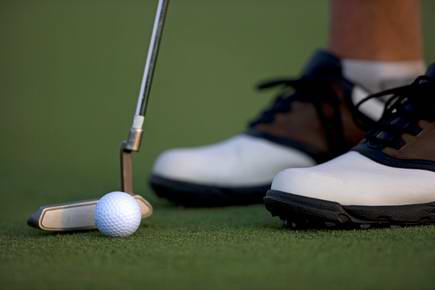 What New Zealander would deny Fiji her brilliant Olympic Games Sevens victory?
What New Zealander would deny Fiji her brilliant Olympic Games Sevens victory?
Forgetting all about the embarrassment of New Zealand’s Olympic Sevens campaign, it has to be said that there could be no more deserving winner than Fiji.
New Zealanders have enjoyed a far greater success rate in Olympic competition than many other similarly-sized countries – think Ireland for starters. Up to 2012 Ireland had won 29 medals at the Summer Olympic Games, nine golds, eight silvers and four bronze. New Zealand, by comparison, had won 99 medals at the summer Olympic Games, 42 gold, 18 silver and 39 bronze medals.
So, for Fiji to achieve their first medal, of any kind, since entering in 1956, in Melbourne, is outstanding. They have competed at every subsequent Games except Tokyo in 1964 and Moscow in 1980.
In that time they have been one of the dominant sides in the Sevens game, and while not quite so successful as New Zealand in the IRB World Sevens tournaments, they have been there and thereabouts, always a tough side to knock over.
They don’t have the playing depth most of their opponents enjoy however, they have played in a manner that has been hard, but entertaining, and it has been the introduction of Englishman Ben Ryan as coach that has provided the consistency of performance that sometimes let the often ebullient Fijians down in pressure games.
The lift that gold medal will give to the island nation can only be wondered. Certainly the public have had a special moment to savour but the publicity surrounding their feat will have spread the message about their country far and wide.
Only greater things can come from such exposure. Sponsorship has always been an issue for the smaller countries, but the introduction of the Sevens into the Olympics has opened up a whole new raft of opportunities and World Rugby needs to ensure that building blocks to build on the success are put in place.
Fijians, like their Samoan and Tongan neighbours, have been part of rugby’s diaspora as they attempt to gain market value for their skills around the world but this Olympic success shows that a significant step towards growing the game could be achieved by opening up more opportunities for smaller nations.
At the same time it should be acknowledged that there is plenty of discussion about whether games like Sevens belong at the Olympics. And do tennis, golf and even beach volleyball really belong there?
It’s not Fiji’s fault that Sevens got in, and they have used it to achieve a remarkable feat.
*
But golf has been shambolic. With so many high-profile players pulling out, citing the prospect of the Zika virus, the game deserves to be dropped like a hot potato.
Given the high stakes in golf, where prize money is astronomical, it is understandable why selfishness entered the Olympics consideration for many players. Many players could not afford the risk of succumbing to the virus and being unable to play at the top of their game for a long period.
So make their decision for them – drop golf from the Games and, in all reality, tennis probably should not be far behind. Both sports have their four major titles a year and their respective team events, the Ryder or President’s Cup for golf and the Davis Cup for tennis. They have plenty of top quality events, why do they need another every four years?
OLYMPIC LISTS
Five questions surrounding New Zealand’s Olympics
- When is someone going to realise that swimming is undeserving of so much of the funding they receive? This sport has consistently under-achieved since the days when Danyon Loader was at his peak. Too many New Zealand swimmers are satisfied with improving their best times and little else. Until the sport proves capable of recognising genuine top-flight performers they should be put on the back burner.
- Where to now for New Zealand rowing? Come Tokyo in 2020, New Zealand are not going to be able to rely on those two magnificent performers Hamish Bond and Eric Murray, and the stalwart Mahe Drysdale to assure them of Olympic gold medals. Could it be that the eights return to the forefront of the sport to be the main hopes? Can New Zealand Rowing hold onto coach Dick Tonks? It may be that a period of rebuilding is about to begin.
- Will New Zealand ever produce more middle-distance athletes capable of footing it with the best in the world? Yes there were three New Zealanders in the men’s 1500m in Rio and yes Nick Willis has been close to upholding the country’s great tradition and yes Zane Robertson did well to break Dick Quax’s record in the 10,000m but he was 12th. Where are all the others? What has gone wrong with New Zealand’s track coaching?
- What will New Zealand Athletics do now that one of the finest ambassadors for their track and field programme Valerie Adams is likely to retire? Adams has been a phenomenon who has helped athletics achieve a significant profile in New Zealand. It has helped that she has projected such a positive image for the sport and it may be some time before New Zealanders appreciate just what an impact she has made on the sport world-wide, but make no mistake she has been one of our finest sportswomen.
- What is it going to take for New Zealand’s hockey players to move to the next plateau of performance? Clearly, both the men’s and women’s sides are competitive on the world stage and on occasions are capable of knocking off the top sides. However, it is the all important top-flight consistency that is missing and which seems to catch them out in the money-winning stages of top events. Do we have the skills, and players, to go to that next level?
By Lynn McConnell. Read more here.









ekaterina test - 8 years ago
Some comment just to say Hi to everyone!